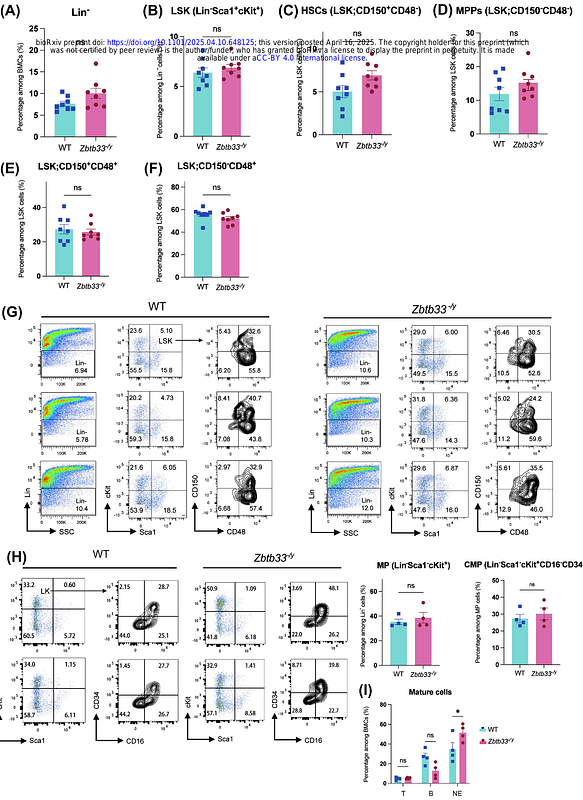Loss of transcriptional factor Zbtb33 fails to induce clonal hematopoiesis in mice but plays a role in tumor immunity

Loss of transcriptional factor Zbtb33 fails to induce clonal hematopoiesis in mice but plays a role in tumor immunity
Li, Y.; Luo, k.; Liu, J.; Dong, G.; Zhao, Z.; CAI, Z.
AbstractClonal hematopoiesis (CH) is an early indicator of hematologic malignancies, driven by mutations in hematopoietic stem cells (HSCs) such as TET2 or TP53. Mutations in ZBTB33 have been implicated in MDS and suggested as a potential driver of CH. However, the role of ZBTB33 in hematopoiesis and its involvement in CH remains unclear. We generated a Zbtb33-knockout mouse strain to elucidate its role in hematopoiesis and the immune system. Our findings indicate that hematopoiesis in Zbtb33-defecient mice appeared grossly normal, and competitive bone marrow transplantation assays demonstrated that loss of Zbtb33 in HSCs did not confer expansional advantage. Introducing the Zbtb33 mutation into Tet2- or Tp53-mutation background yielded no synergistical effects. Tumor challenging assays suggested that Zbtb33 influences cancer immunity response, rather than directly driving CH or myeloid malignancies. In summary, ZBTB33 deficiency was insufficient to induce clonal hematopoiesis but may have a regulatory role in tumor microenvironment.